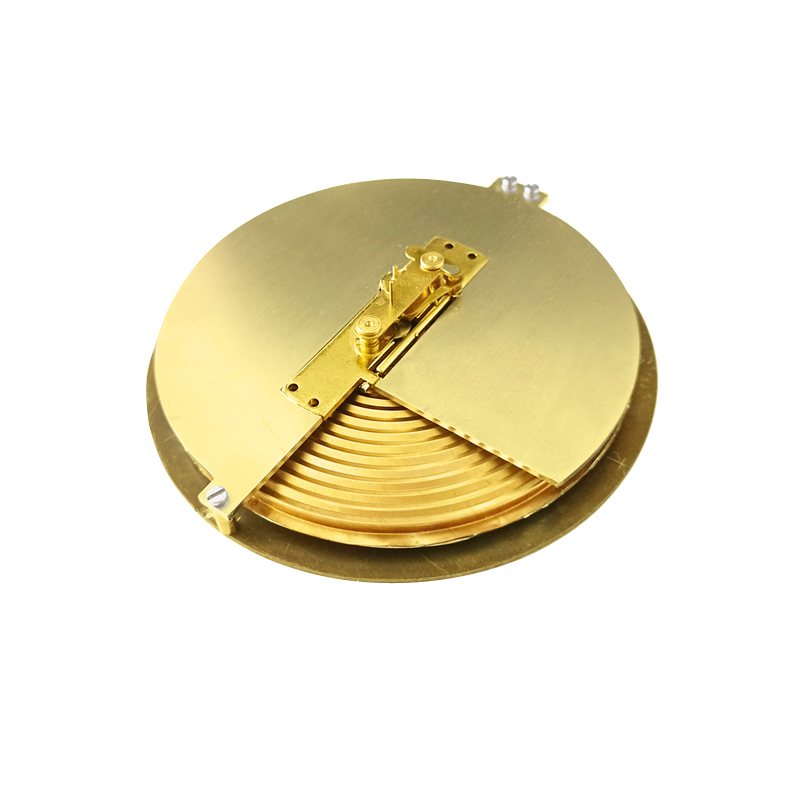
Nov . 30, 2024 17:23 Back to list
OEM Differential Pressure Gauge for Chilled Water Systems and Applications
Understanding OEM Differential Pressure Gauges for Chilled Water Systems
The chilled water system is a critical component in many HVAC (heating, ventilation, and air conditioning) applications, particularly in large commercial buildings and industrial facilities. Ensuring that these systems operate efficiently is essential for maintaining comfortable indoor climates and minimizing energy costs. One of the key instruments used in monitoring the performance of chilled water systems is the OEM (Original Equipment Manufacturer) differential pressure gauge. This article delves into the significance, operation, and selection of these gauges in chilled water applications.
What is a Differential Pressure Gauge?
A differential pressure gauge measures the difference in pressure between two points within a system. In the context of chilled water systems, it is commonly used to monitor the pressure drop across components such as filters, coils, and pumps. This measurement is crucial for assessing the system’s health, diagnosing potential issues, and ensuring optimal operation.
Importance in Chilled Water Systems
In chilled water applications, maintaining the right pressure levels is essential for several reasons
1. System Efficiency A differential pressure gauge helps monitor the flow of chilled water, ensuring that it circulates efficiently through the system. An increase in pressure differential can indicate a blockage or a need for filter cleaning, impacting efficiency and energy usage.
2. Preventing Damage By providing real-time data, these gauges can help prevent potential system failures. High differential pressure readings might signal that a pump is working harder than necessary, which can lead to premature failure or damage.
3. Comfort Control Maintaining consistent pressure levels in chilled water systems is vital for ensuring comfortable temperatures in conditioned spaces. Fluctuations in pressure can lead to inconsistent cooling performance, affecting overall comfort.
4. Energy Management Effective monitoring allows facility managers to identify areas where energy savings can be achieved. By consistently operating within optimal pressure ranges, the overall energy consumption of the system can be reduced.
oem differential pressure gauge chilled water

Selecting the Right OEM Differential Pressure Gauge
When choosing a differential pressure gauge for chilled water applications, several factors should be taken into consideration
1. Operating Range The gauge must have an appropriate pressure range that aligns with the specific system requirements. Selecting a gauge that can handle the maximum expected differential pressure is crucial to ensure accurate readings without damage.
2. Temperature Compatibility It is essential to choose a gauge that can withstand the temperature ranges typical of chilled water systems. This ensures the reliability and longevity of the device.
3. Material Compatibility The materials used in the gauge must be compatible with the fluid being measured. Corrosion-resistant materials are often preferred to ensure durability and avoid contamination.
4. Accuracy and Calibration An accurate gauge is crucial for effective monitoring. Understanding the calibration process and ensuring that the gauge maintains its accuracy over time is essential for reliable performance.
5. Ease of Installation and Maintenance Select a gauge that is easy to install and maintain. This not only saves time during setup but also ensures that regular maintenance can be performed efficiently.
Conclusion
OEM differential pressure gauges play an integral role in the effective operation of chilled water systems. By measuring the pressure difference across critical components, they provide invaluable insights into system performance, potential issues, and energy efficiency. When selecting a differential pressure gauge, it is essential to consider factors such as operating range, temperature compatibility, material suitability, accuracy, and maintenance ease. By investing in quality monitoring tools, facility managers can ensure that their chilled water systems operate optimally, ultimately contributing to energy savings and enhanced occupant comfort.
-
High-Quality Pressure Gauge on Fire Extinguisher - Reliable Water Fire Extinguisher Pressure Gauge Suppliers & Exporters
NewsJul.08,2025
-
High-Quality Water Pressure Differential and Gauge Kit Reliable Manufacturers & Competitive Quotes
NewsJul.08,2025
-
High-Precision Digital Diaphragm Pressure Gauge – Reliable Manufacturer & Competitive Quotes
NewsJul.07,2025
-
Wholesale Diaphragm Pressure Gauge Supplier - Premium Quality & Competitive Price
NewsJul.07,2025
-
Digital Diaphragm Pressure Gauge Reliable & Precise Measurement Top Manufacturers Quotes
NewsJul.06,2025
-
High Accuracy Piston Type Differential Pressure Gauge - Reliable Manufacturers & Competitive Quotes
NewsJul.06,2025
